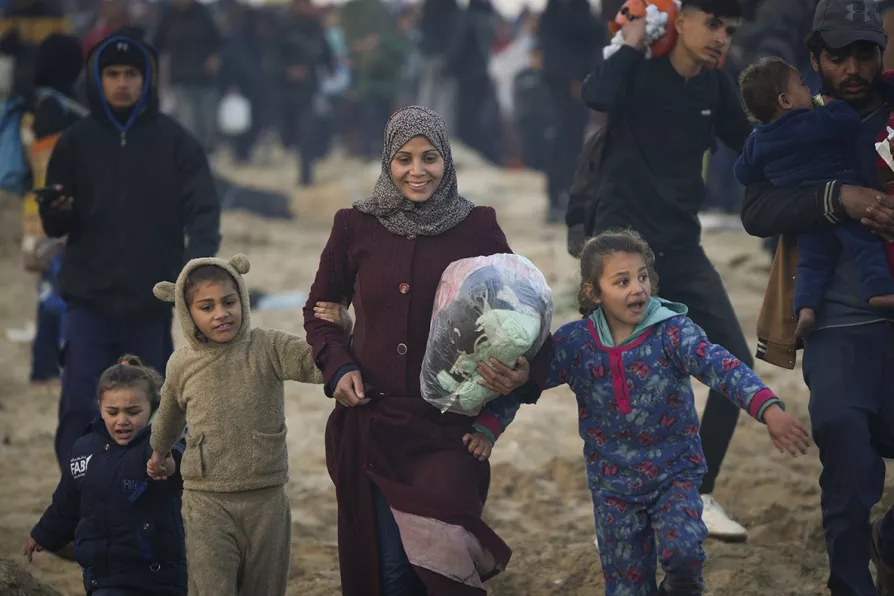The PM says Mandelson 'betrayed our values' – but ministers and advisers flock to line their pockets with corporate cash, says SOLOMON HUGHES

 Displaced Palestinians return to their destroyed homes in the northern Gaza Strip, following Israel's decision to allow thousands of them to go back for the first time since the early weeks of the 15-month destruction of Gaza, January 27, 2025
Displaced Palestinians return to their destroyed homes in the northern Gaza Strip, following Israel's decision to allow thousands of them to go back for the first time since the early weeks of the 15-month destruction of Gaza, January 27, 2025
THE return of one million Palestinians from southern Gaza to the north on January 27 felt as if history was choreographing one of its most earth-shattering events in recent memory.
Hundreds of thousands of people marched along a single street, the coastal Rashid Street, at the furthest western stretch of Gaza. Though these displaced masses were cut off from each other in massive displacement camps in central Gaza and the Mawasi region further south, they sang the same songs, chanted the same chants, and used the same talking points.
During their forced displacement, they had no electricity and no means of communication, let alone co-ordination.
They were ordinary people, hauling a few items of clothing and whatever survival tools they had following the unprecedented Israeli genocide. They headed north to homes they knew were likely destroyed by the Israeli army.
Yet they remained committed to their march back to their annihilated cities and refugee camps. Many smiled, others sang religious hymns, and some recited national songs and poems.
A little girl offered a news reporter a poem she composed. “I am a Palestinian girl, and I am proud,” her voice blared. She recited simple but emotional verses about identifying as a “strong, resilient Palestinian girl.” She spoke of her relationship with her family and community as the “daughter of heroes, the daughter of Gaza,” declaring that Gazans “prefer death over shame.” Her return to her destroyed home was a “day of victory.”
“Victory” was a word repeated by virtually everyone interviewed by the media and countless times on social media.
While many, including some sympathetic to the Palestinian cause, openly challenged the Gazans’ view of their perceived “victory,” they failed to appreciate the history of Palestine — indeed, the history of all colonised people who wrested their freedom from the claws of foreign, brutal enemies.
“Difficulties break some men but make others. No axe is sharp enough to cut the soul of [someone] armed with the hope that he will rise even in the end,” iconic anti-apartheid South African leader Nelson Mandela wrote in a letter to his wife in 1975 from his prison cell.

RAMZY BAROUD looks at how entire West Bank communities have been shattered, their social and physical fabric deliberately dismantled by Israel to enable its formal annexation

Israel’s genocide in Palestine and wars against its neighbours would be impossible without constant Western support — so we must amplify the brave voices demanding a halt, argues DR RAMZY BAROUD

RAMZY BAROUD on how Israel’s narrative collides with military failure











